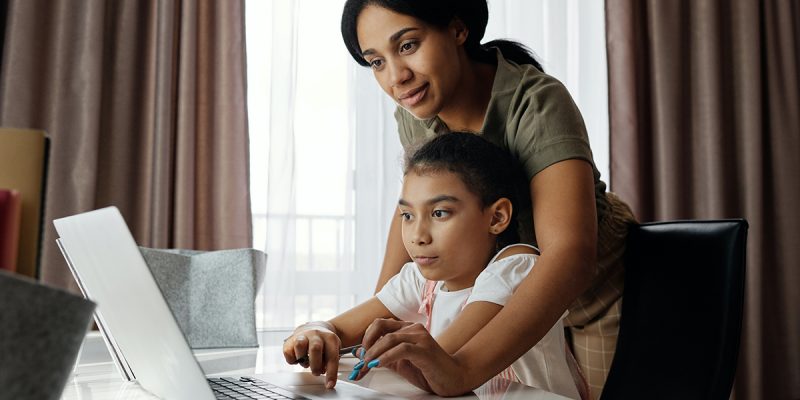The effects of learning from home on children’s mental health and their development is a well-discussed issue during the Covid-19 pandemic. But what about parents?
The closure of schools and the move to online classes has once again forced pupils away from their classmates, back home and learning in front of a screen.
Online classes and their impact on children’s wellbeing is a problem that is researched thoroughly and well debated in the UK – but what about how this affects parents?
With national restrictions forcing many parents to work from home, the pressure of overseeing their child’s schoolwork is just another worry that they have to face.
According to a survey by the TUC, 71% of working mothers who requested furlough for childcare reasons when schools shut were denied their request.
How are parents feeling during the national lockdowns, and does the added pressure of home learning further impact their mental wellbeing?
Rise in stress and depression for parents during lockdown
Research from the University of Oxford has shown that parents’ mental health has worsened during the national Covid-19 restrictions.
Dr Nayeli Gonzalez-Gomez from Oxford Brookes University spoke about the research and said that her own showed similar results.
“Parents of preschool children were among the most affected groups in the population in terms of increases in mental destress during the spring lockdown.
“Parents will show higher levels of stress, of anxiety and also depression.”
Participants in the study reported symptoms such as difficulties relaxing, feeling hopeless, and lacking in interest and pleasure.
How would remote learning add to the pressure on their mental health?

Counsellor Michelle Ruth believes remote learning adds to the pressure that comes alongside parents feeling like they have to do a good job in both aspects of their lives.
“I think it’s a lot harder for parents to juggle because, yes we’ve been in this situation almost a year ago, but things are slightly different now.
“That child has gotten another year or six months older and the demands on their learning has probably increased.”
“How am I going to be a CEO and a teacher? Or how am I going to be an office worker and a teacher?”
The pressures on mothers specifically worried her, as she believes the expectation to balance both childcare and work has been historically laid on them:
“Trying to square that being a good parent and getting out to work – women have always had a difficult time with that.
“Yes it has gotten better in recent decades but I still don’t think we’re there yet.”
She also explained how guilt of “not doing enough” could have a big impact on their mental health.
“Women often have imposter syndrome, it’s ‘Okay now I have to be a teacher.’
“‘How am I going to be a CEO and a teacher?’ Or ‘how am I going to be an office worker and a teacher?’ It’s hard to think of being able to do that well.”
“The first time round I felt more guilty because I felt like we had to do it non-stop. Learning, learning, learning, learning – oh I’m not doing enough.”

Cécile Blaireau is a mother to 5-year old Baba and said how due to his age, she has to be really involved in his online school work.
“It’s an age where I can’t say ‘right go on your tablet and do a zoom lesson with your teacher for an hour’.
“You have to be with him. So you have to really be active and try to do it in small periods.”
She described how she fought the guilt she experienced in the first lockdown by keeping organised and not trying to be perfect.
“I feel less guilty if I say ‘okay we’ve done 20 minutes learning, you could watch a bit of cartoons.
“Whereas the first time round I felt more guilty because I felt like we had to do it non-stop. Learning, learning, learning, learning – oh I’m not doing enough.”
Cécile also said how she is less stressed because she decided she won’t be “so tough on herself”.
“I’m coping better mentally I suppose because I know that I’ve got lower expectations in a way.”
Listen to our audio package about how remote learning is affecting parents’ mental health:
Read More:


 Could the medical cannabis industry boost the economy of post-lockdown Britain?
Could the medical cannabis industry boost the economy of post-lockdown Britain?